What is the best route to climb Kilimanjaro?
The route you pick for your Kilimanjaro trek will help to determine the experience that you enjoy, from comfortable dorms to wild camping!
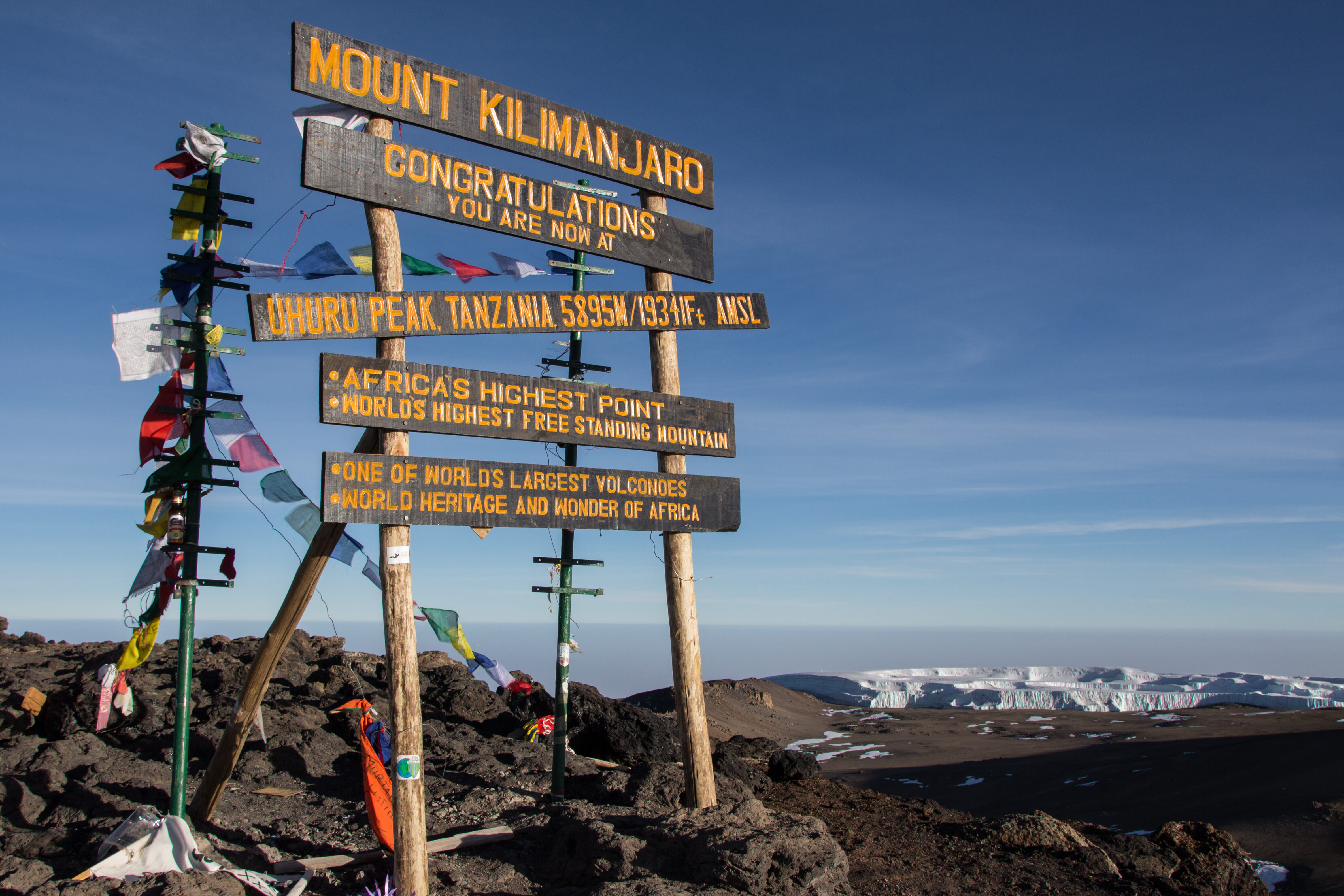
The highest free-standing mountain in the world, Kilimanjaro is an impressive spectacle and sits atop many trekkers' bucket lists. Hiking to the 5,895m summit is a classic challenge and yields unforgettable memories.
Found in Tanzania, Kilimanjaro is Africa's tallest mountain and usually takes between five and seven days to trek, including the descent. The snow-clad peak can be seen from miles away and iconic photos of the daunting summit set against the African savannah are often what sparks the imagination of aspiring trekkers.
As you'd expect with such a popular destination, there's no single way to climb Kilimanjaro and your choice of route will actually have a bigger impact on your experience than you might first think.
Some popular routes are relatively busy and, as such, benefit from larger accommodation that helps to create a more comfortable experience. Other routes are less well-known and may involve a bit of 'roughing it', which arguably results in a more 'authentic' trek.
Either way, your Kilimanjaro trek will be an experience that you'll never forget!
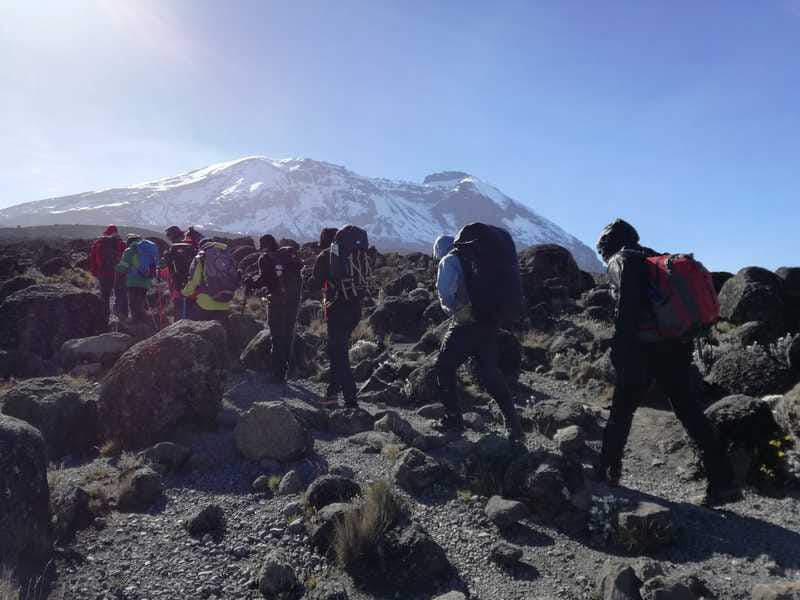
The Marangu Route
Despite being the original route to the summit of Kilimanjaro, the Marangu Route is often labelled as having one of the lowest success rates for trekkers. However, this is an unhelpful stat as most of these failed climbs were on expeditions scheduled to race to the summit and back in five days. Give yourself enough time to acclimatise and plan for a six day journey, and suddenly the Marangu is much more achievable.
A major benefit of this route is the dormitory-style huts along the way, which make sure that you get a comfortable night's sleep on the ascent, which really helps the acclimatisation process. The Mandara, Horombo and Kibo huts are relatively basic - you will need your own sleeping bag, for example - but having a mattress and access to hygiene facilities is a great help to your chances of success.
The Marangu Route is a popular option for tourists and is also known as the "Coca-Cola Route" thanks to the soft drinks that used to be sold along the way, so trekkers looking for a wilder experience may want to look elsewhere. The old adage is that you don't change something that isn't broken, though, and this is the oldest route to Kili's summit, so you'll be following in the footsteps of many thousands of successful trekkers.
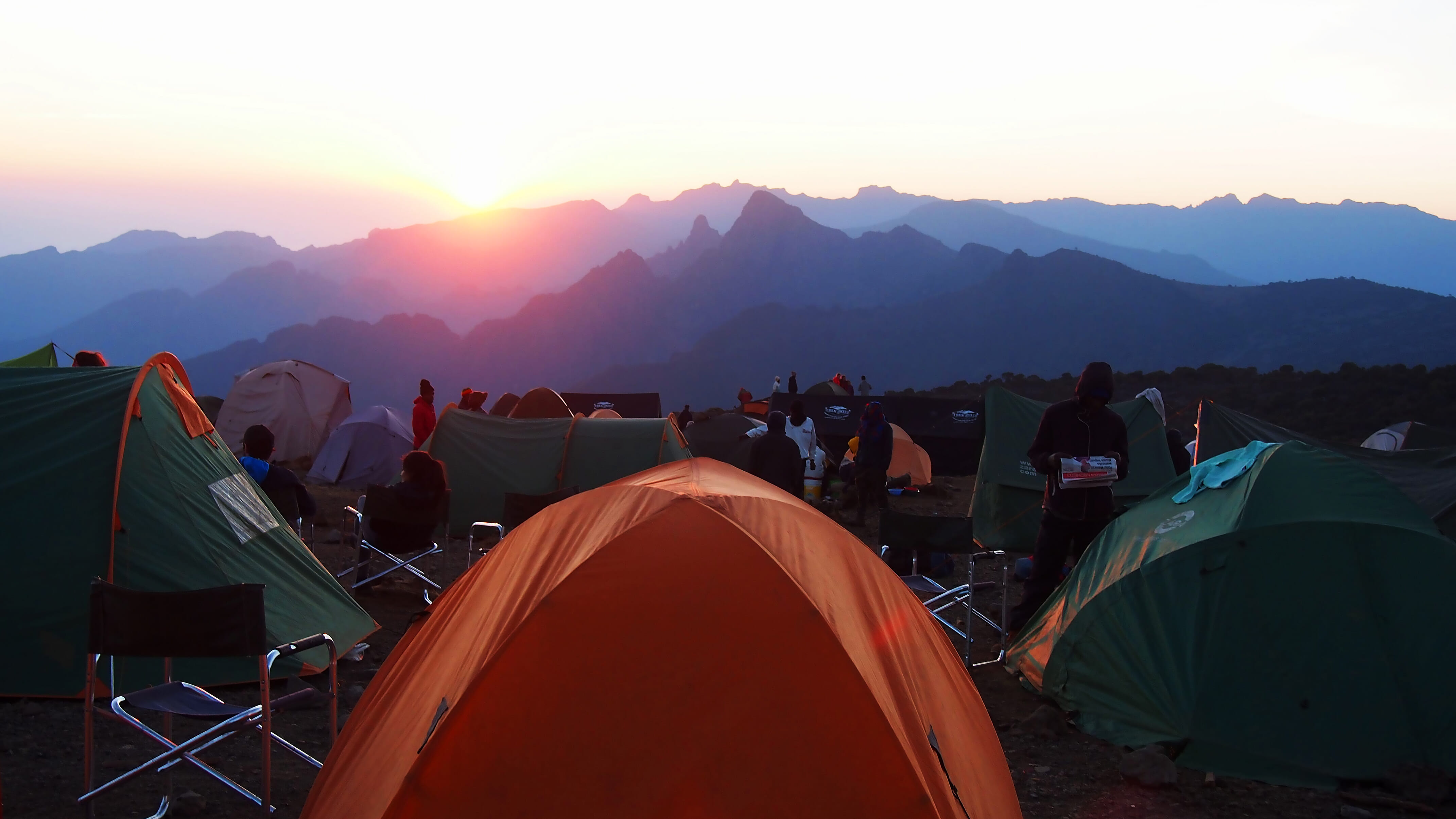
The Machame Route
Regarded as the both the most popular and therefore the busiest route to the summit, the Machame provides a brilliant experience thanks to its varied terrain and environments.
Departing the Machame Gate at 1,800m, trekkers head into the rainforest and emerge a day later to reach Shira Camp, from where they hop to multiple camps and finally reach the summit on the seventh day. This gradual process of acclimatisation helps to give the Machame Route a higher success rate than other approaches. From the summit, trekkers can descend on an alternative route to Mweka Gate, providing some variation.
With some scrambling involved and a few steep sections, the Machame is often considered more demanding than the Marangu but in reality requires no greater levels of fitness, particularly considering the extra day or so given to acclimatising. What's more, the incredible variety of views on offer from this south-western approach will help you create some truly unforgettable memories.
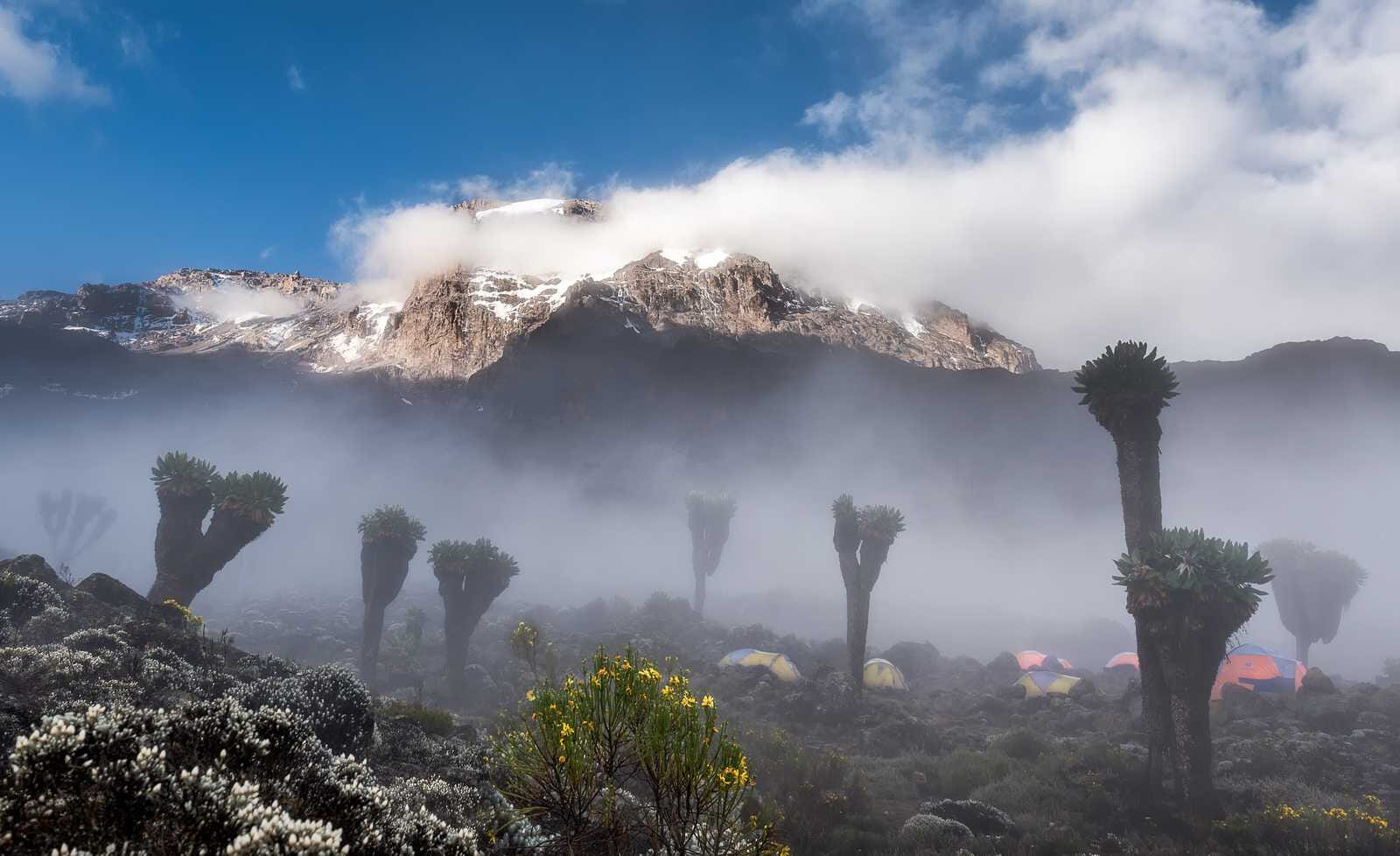
The Lemosho Route
This wilder route avoids the crowds of the southern approaches and although it's less popular, still retains a great chance of successfully summiting the tallest mountain in Africa.
You begin to the west of Kilimanjaro at the Londorossi Gate, standing at 2,360m. From here, the route passes through rainforest to the Shira Plateau, enjoying fantastic views of Shira Cathedral and across the plains of Tanzania. At Shira Camp, you actually join the Machame Route and follow its path to the summit, which means the Lemosho enjoys the benefits of both a quieter beginning and a well-trodden final approach.
That initial trek through the jungle is renowned for great opportunities to spot wildlife and more peaceful climbing, which makes the transition to the snow-capped summit even more remarkable. Many trekkers on this approach aim to reach the summit at sunrise, providing a great opportunity for some remarkable photos to take home.

The Rongai Route
Approaching from the north, the Rongai Route is even wilder than the Lemosho and enjoys many benefits from skipping the crowds, not least the chance to see some spectacular wildlife, including elephants, buffalo and antelope.
This is the only route up Kilimanjaro that arrives from the north of the mountain and as such is far quieter, though the route has seen an increase in popularity in recent years. From the Rongai Gate, you will trek through the village of Nale Moru and pine forest to reach First Cave Camp, passing on to Kikelewa Camp, Mawenzi Tarn and Kibo Camp before attempting the summit in time for the sunrise.
The return journey descends to the Marangu Gate to provide a rich variety of views. Overall, the Rongai Route takes around seven days to complete, including a day of acclimatisation at Mawenzi Tarn that will increase your chances of successfully reaching the summit. Thanks partly to this, the Rongai is often regarded as the easiest way to climb Kilimanjaro, but don't take it lightly!
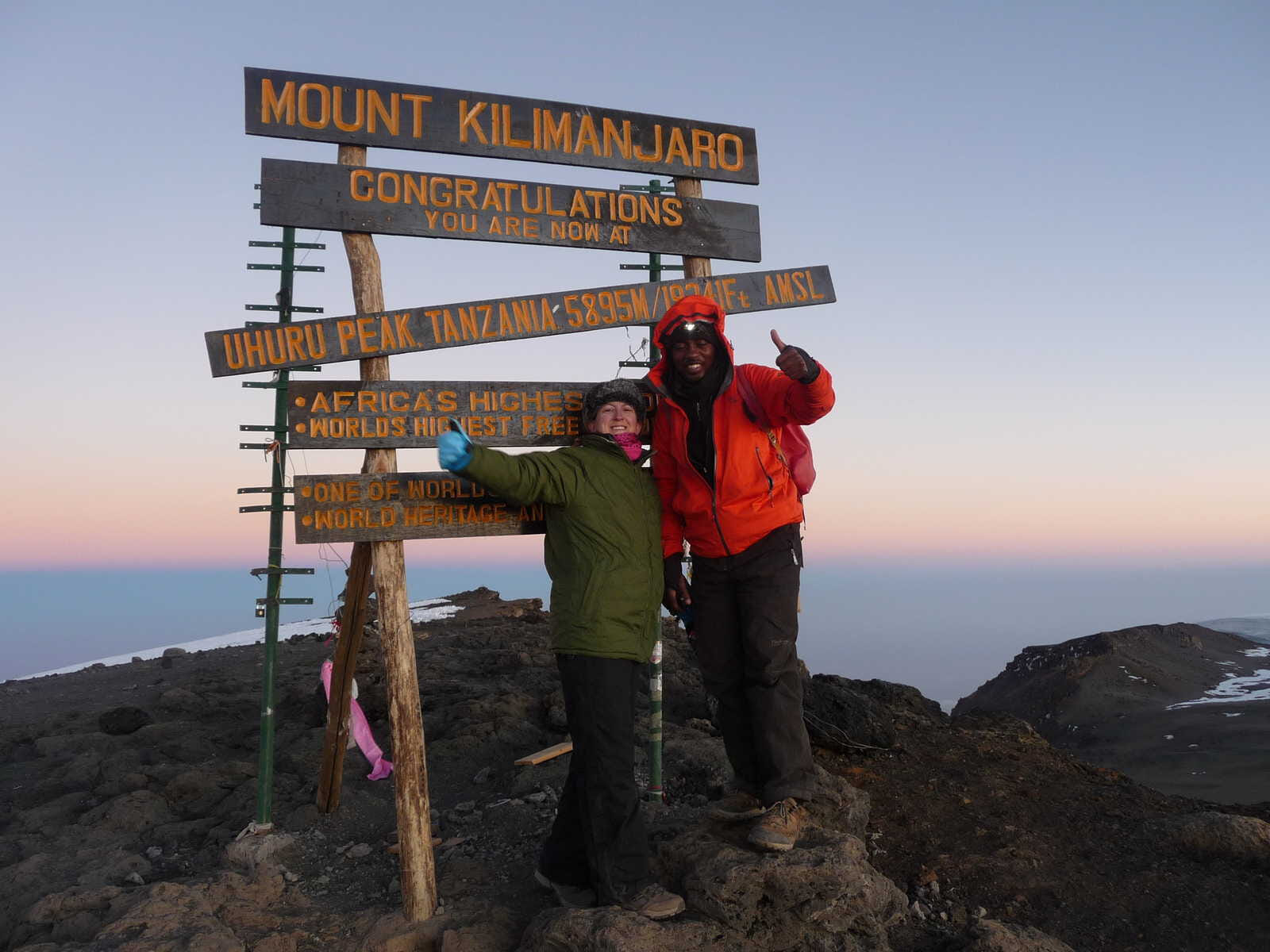
The Northern Circuit
Despite its name, this route actually begins to the west of Kilimanjaro, arriving at the Londorossi Gate and following the Lemosho Route for the first two days. Where that route then diverts to meet the Marangu, the Northern Circuit heads north to traverse around the mountain and approach the summit from Third Cave Camp and School Hut.
The Northern Circuit is the longest route and takes around eight or nine days to complete, giving more time to acclimatise and therefore a great chance of successfully reaching the summit. It also diverts away from the busier southern approaches, providing a quieter and more tranquil experience.
The rich variety of scenery and wildlife, from jungle paths to snowy peaks, along the Northern Circuit helps to create an incredible experience that will live long in the memory.
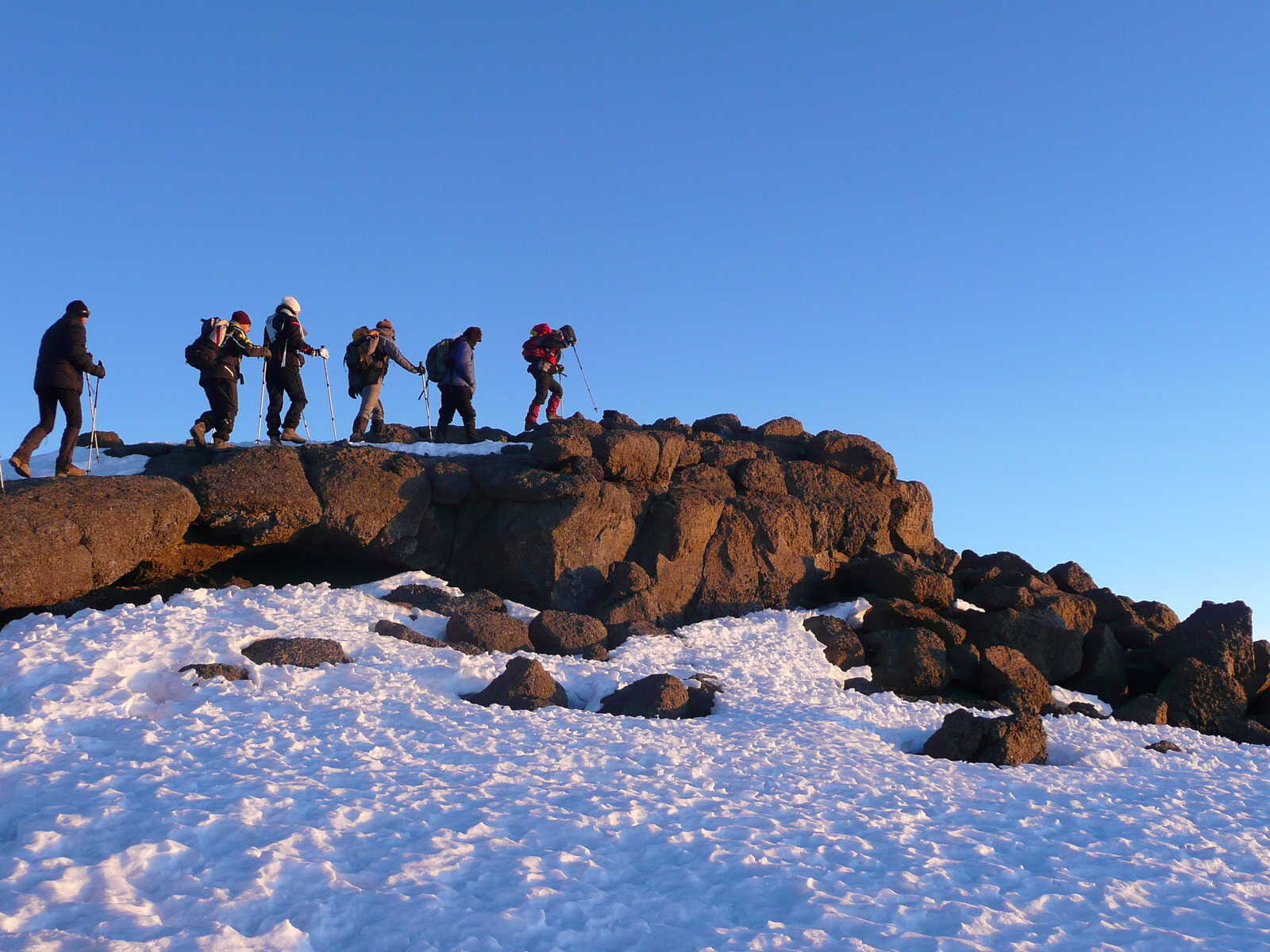
Pick your adventure
Whichever route up Kilimanjaro you choose, you will enjoy an epic trip to one of the most iconic adventure locations on Earth. Your choice of route will help to determine exactly how that experience will unfold, which may be determined by your previous trekking and mountaineering experience.
If you've not been involved in a multi-day trek or experienced high altitude before, you can still definitely get to the summit of Kilimanjaro but we'd also recommend getting some practise in first!
You can read our guide to the best hiking events in the UK this summer or check out a wider selection of challenge walks that will help you to prepare for your Kilimanjaro trek.
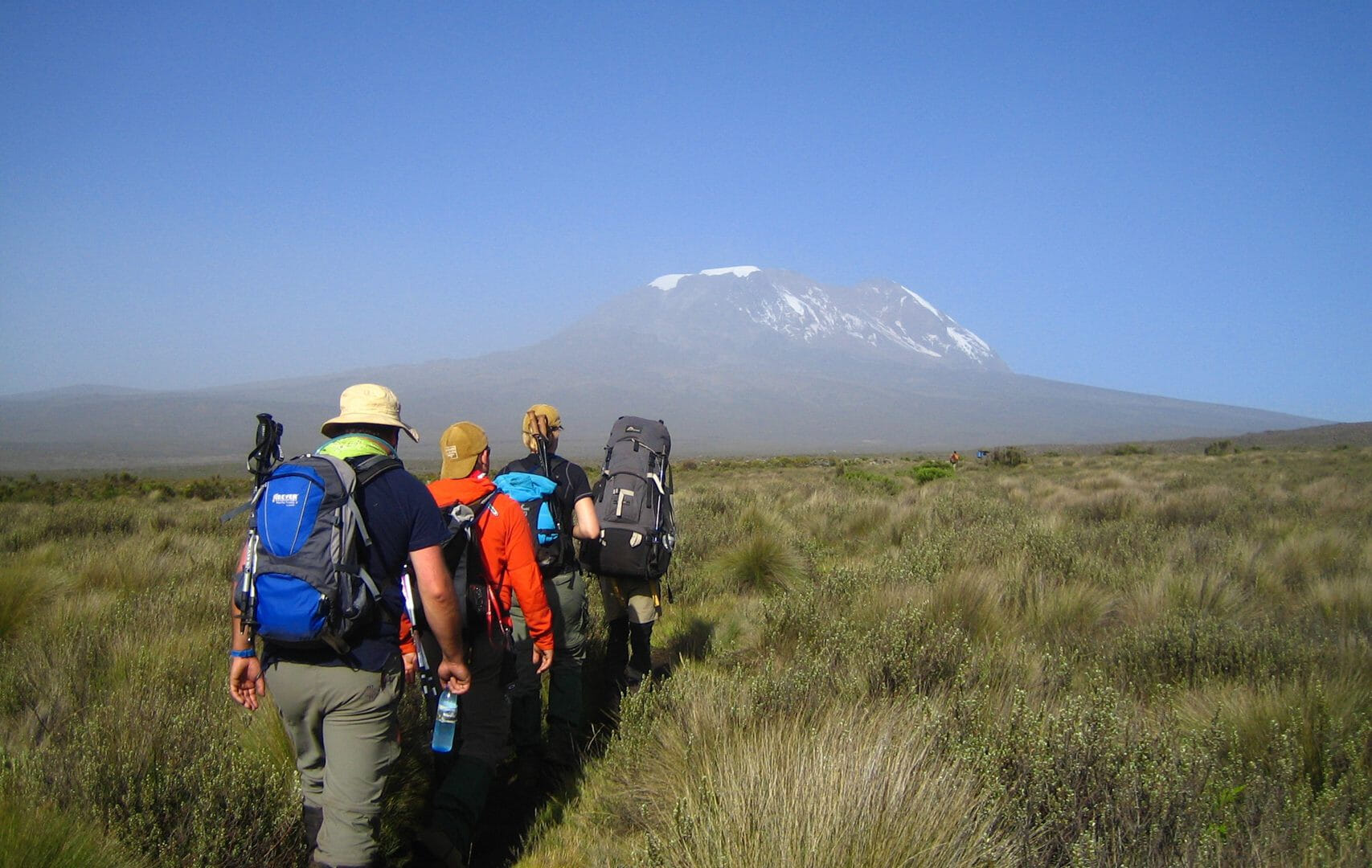
- 8 nights from £1,868.36
Kilimanjaro Trek | 9 Day Lemosho Route
Embark on a transformative journey along a route celebrated for its breathtaking panoramas, gradual ascent and exceptional summit success rate with expert guides by your side - truly unforgettable.
- 9 days trekking

- 8 nights from £2,450
Mount Kilimanjaro Trek | 7 Day Machame Route
Face up to majestic Mount Kilimanjaro on this once-in-a-lifetime adventure, trekking from the savannah heat to the frozen summit at 5,895m above sea level, the highest point in Africa.
- 7 days trekking
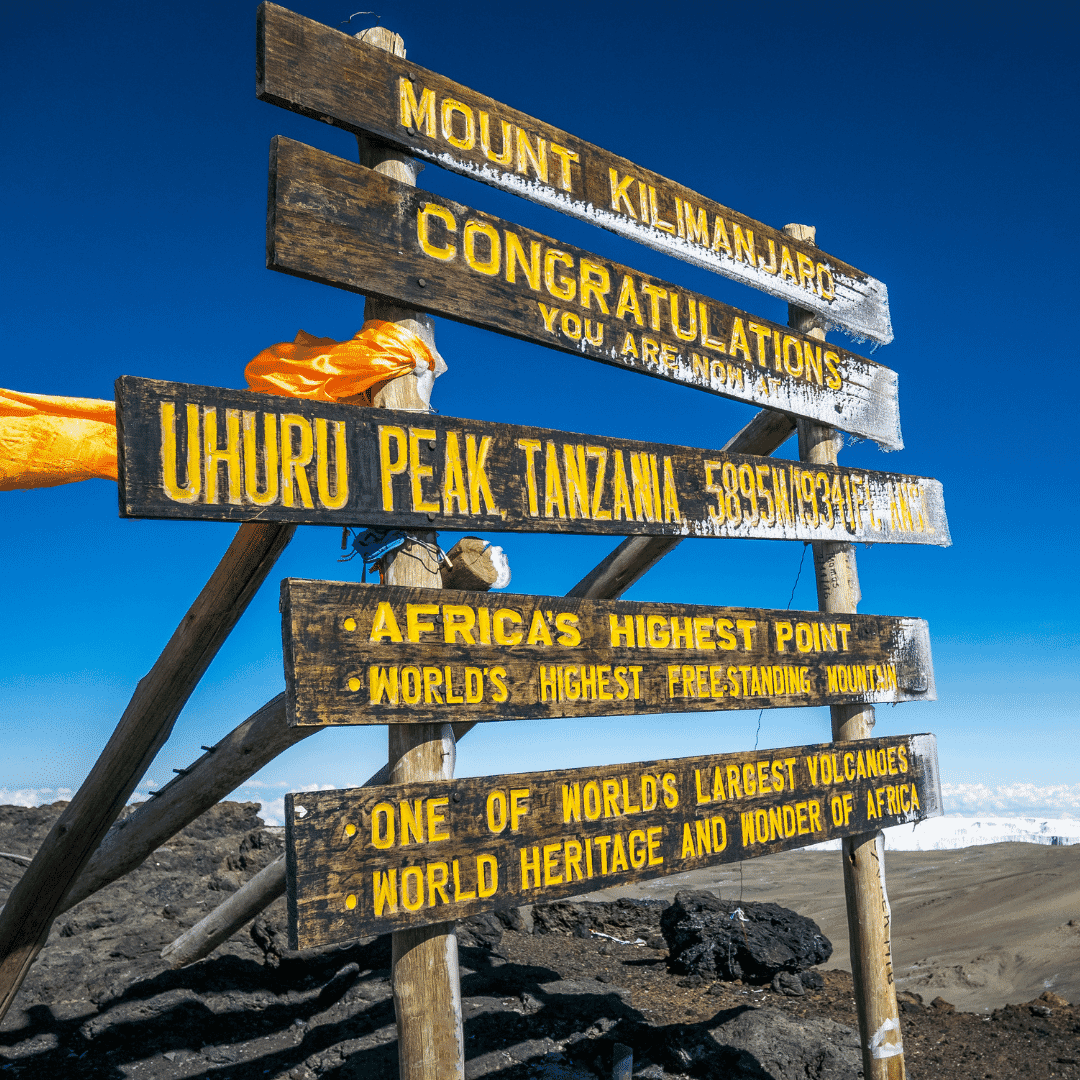
- 7 nights from £1,480
- 2+ people save £100s
Kilimanjaro Marangu Route
Conquer Kilimanjaro on the Marangu Route, also known as the “Coca-Cola Route,” for its comfortable hut accommodations and stunning scenery. Trek through lush rainforests, alpine deserts and moorlands.
2+ people save £100s
- 5 days trekking